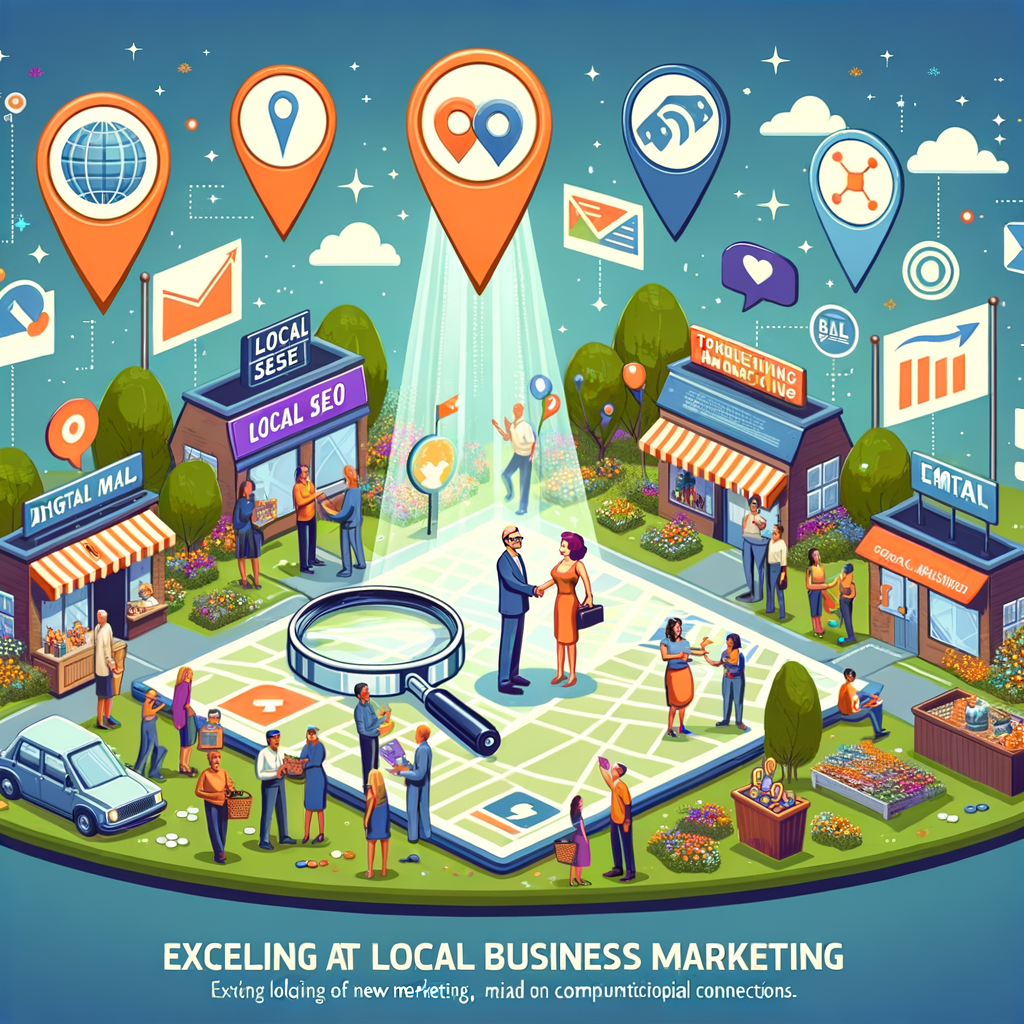Mastering Local Business Marketing: Strategies and Insights
 In an era where globalization has taken center stage, the importance of local business marketing cannot be overstated. For over three decades, the landscape of marketing has evolved dramatically, yet the essence of connecting with local communities and fostering loyal customer bases remains unchanged. This article aims to delve into the nuances of local business marketing, providing a comprehensive guide to strategies that have stood the test of time, as well as embracing new trends that are shaping the future of local commerce.
In an era where globalization has taken center stage, the importance of local business marketing cannot be overstated. For over three decades, the landscape of marketing has evolved dramatically, yet the essence of connecting with local communities and fostering loyal customer bases remains unchanged. This article aims to delve into the nuances of local business marketing, providing a comprehensive guide to strategies that have stood the test of time, as well as embracing new trends that are shaping the future of local commerce.
The Foundation of Local Business Marketing
At its core, local business marketing is about understanding and engaging with your community. It’s about building relationships with local customers, understanding their needs, and delivering value that resonates on a personal level. The foundation of successful local marketing lies in the ability to communicate effectively with your target audience, leveraging both traditional methods and digital platforms to create a cohesive and compelling marketing strategy.
Traditional Marketing Channels
Despite the rapid advances in digital technology, traditional marketing channels such as print advertising, direct mail, flyers, and community involvement remain powerful tools for local businesses. These methods offer a tangible connection to the community, fostering a sense of familiarity and trust that is often harder to achieve through digital means alone.
Digital Marketing Strategies
On the flip side, the digital revolution has opened up a plethora of opportunities for local businesses to expand their reach and engage with customers in innovative ways. From local SEO and targeted social media campaigns to email marketing and Google My Business optimization, digital strategies are integral to the modern local business marketing mix. These tools not only enhance visibility but also allow for more personalized and interactive customer experiences.
SEO: The Keystone of Digital Local Business Marketing
Search Engine Optimization (SEO) has become a critical component of local business marketing. It’s not just about being visible online; it’s about being found by the right people at the right time. Local SEO strategies such as optimizing for “near me” searches, ensuring accurate and consistent NAP (Name, Address, Phone Number) listings across the web, and garnering positive reviews on platforms like Google My Business, can significantly impact a local business’s online presence and, ultimately, its bottom line.
Content Marketing: Telling Your Local Story
Content marketing is another powerful strategy in the arsenal of local business marketing. By creating and sharing valuable, relevant, and consistent content, businesses can attract and retain a clearly defined audience. For local businesses, this means telling your local story. Highlighting your involvement in community events, showcasing customer testimonials, and providing insights into your business’s unique history and offerings can create a strong emotional connection with your audience, driving engagement and loyalty.
Engaging with the Community: Beyond Marketing
Local business marketing goes beyond mere advertising; it’s about becoming an integral part of the community you serve. Hosting local events, participating in charity work, and collaborating with other local businesses can enhance your visibility and credibility within the community. These activities not only serve as powerful marketing tools but also help to build a stronger, more cohesive community that supports and uplifts local enterprises.
Measuring Success in Local Business Marketing
As with any marketing strategy, the success of local business marketing efforts must be measured and analyzed. Tools such as Google Analytics, customer feedback surveys, and social media insights can provide valuable data on how well your marketing strategies are performing. This data can then inform future marketing efforts, allowing for continuous improvement and adaptation to the ever-changing local business landscape.
Conclusion: The Future of Local Business Marketing
The future of local business marketing is bright, but it requires a balanced approach that integrates traditional marketing wisdom with the innovative possibilities offered by digital technology. By understanding and engaging with their local communities, businesses can create meaningful connections that drive loyalty and growth. In an increasingly digital world, the local touch remains more relevant than ever, proving that local business marketing is not just about selling products or services—it’s about building a community.
In the journey of local business marketing, it’s important to remember that change is the only constant. Staying informed, being adaptable, and maintaining a genuine commitment to your community are key to thriving in the dynamic world of local commerce. As we look to the future, the principles of trust, engagement, and community will continue to be the cornerstones of successful local business marketing strategies.
